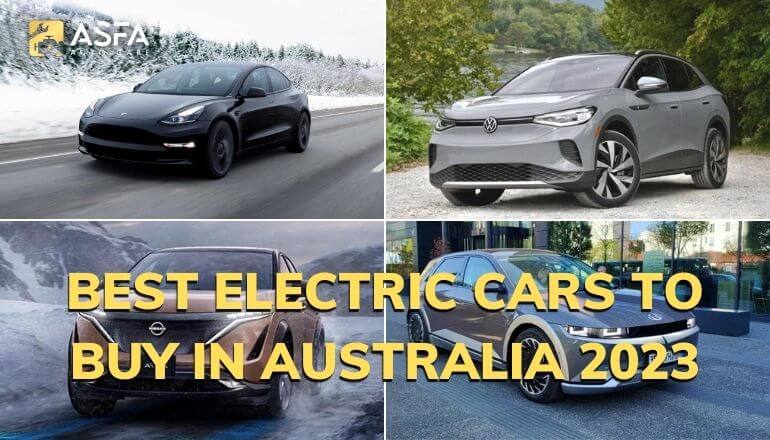Australia is starting to experience a rise in interest in EVs as they gain popularity throughout the world. Australian consumers wishing to transition to electric vehicles will have many interesting alternatives thanks to a variety of new models that will be available in 2023.
In this blog, we will talk about the Best electric cars in Australia in 2023 and their features to help you select the one that’s best for you.
Best Electric Cars in Australia in 2023
1. Model 3 Tesla
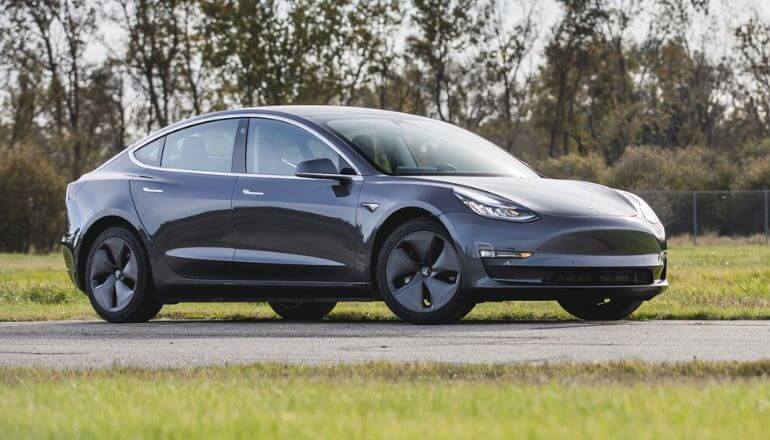
Since its debut in 2017, the Tesla Model 3 mid-sized vehicle has gained enormous popularity. One of the market’s longest-range electric vehicles, the Model 3 boasts an all-electric range of up to 580 km on a single charge.
It also has remarkable acceleration, reaching 100 km/h from 0 in 3.3 seconds. Several cutting-edge innovations, like autopilot, a large touchscreen, and over-the-air software upgrades, are included in the Model 3.
Although the Model 3 is more expensive than some of the other electric vehicles available on the market, people who can afford it should consider it because of its performance and features.
Pros
- Long-range
- accelerated quickly
- advanced capabilities
Cons
- High Price Point
2. Hyundai Ioniq 5
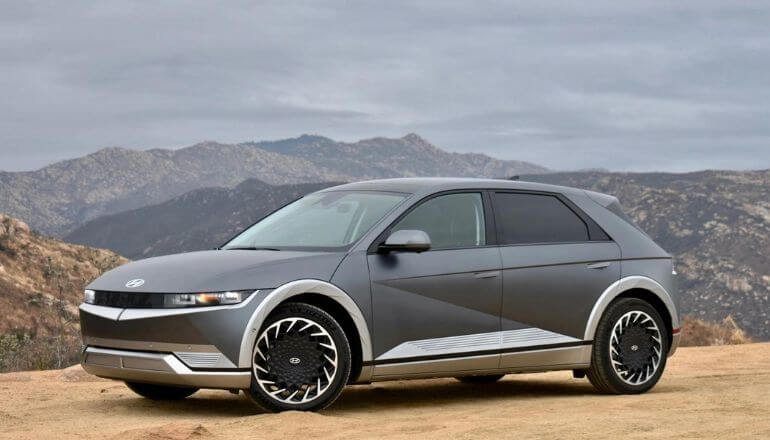
In Australia, the Hyundai Ioniq 5 is a brand-new electric SUV that will be on sale in 2023. With its quick charging capabilities, the Ioniq 5 can charge up to 80% in only 18 minutes and has a range of up to 480 km on a single charge.
Along with other cutting-edge technologies, the Ioniq 5 is outfitted with a 12.3-inch touchscreen display, a digital instrument cluster, and several safety measures. The Ioniq 5 is a little cheaper than some of the other electric SUVs available, with a starting price of roughly $70,000.
Pros
-
-
- Long-range
- quick charging
- advanced capabilities
- inexpensive price
Cons
-
-
- Limited Availability
3. Nissan Ariya
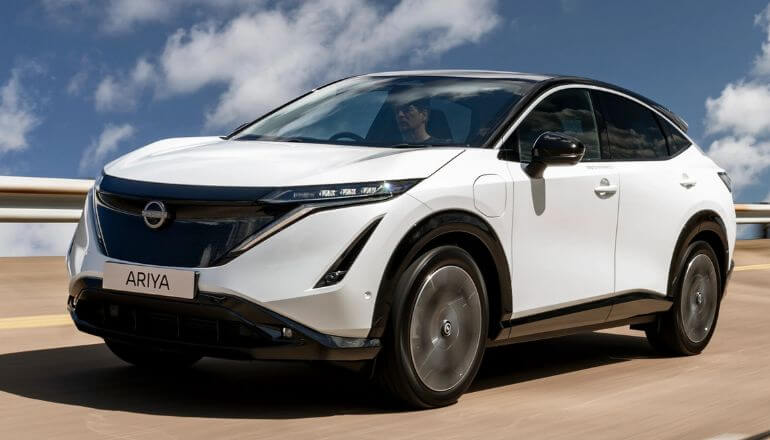
Another brand-new electric SUV scheduled for arrival in Australia in 2023 is the Nissan Ariya. One of the market’s longest-range electric vehicles, the Ariya has a range of up to 610 km on a single charge. Additionally, it has quick charging capabilities, allowing for a 375km charge in just 30 minutes.
The Ariya comes with a number of cutting-edge innovations, including Nissan’s ProPilot driving assistance system, a 12.3-inch touchscreen display, and a digital instrument panel. The Ariya is a little more expensive than some of the other electric SUVs available, with a starting price of about $75,000.
Pros
-
-
- Long-range
- Quick charging
- Advanced capabilities
Cons
-
-
- High price tag
4. Volkswagen ID.4
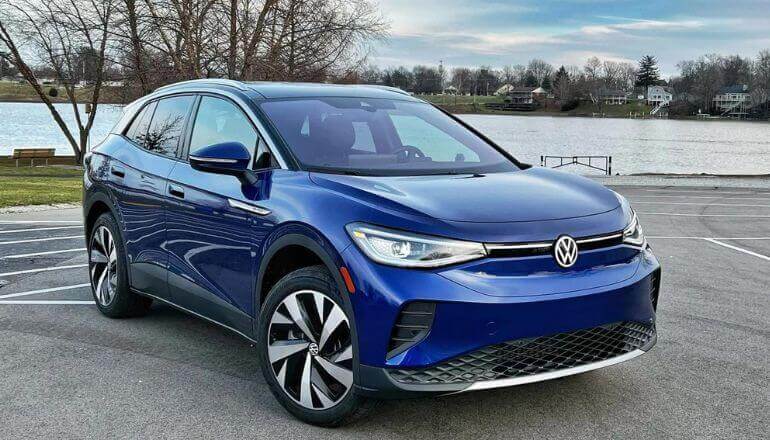
In 2023, Australia will get the next electric SUV from Volkswagen called the ID.4. With its quick charging capabilities, the ID.4 can charge up to 320 km in only 30 minutes and offers a range of up to 520 kilometres on a single charge.
The ID.4 comes with several cutting-edge innovations, including Volkswagen’s IQ, a driving assistance system, a 10-inch touchscreen display, and a digital instrument panel. The ID.4 is one of the most reasonably priced electric SUVs available, with a starting price of about $65,000.
Pros
-
-
- Long-range
- Quick charging
- Advanced capabilities
- Inexpensive price
Cons
-
-
- Limited Availability
Best affordable EV Cars to buy in Australia
There are now more reasonably priced choices on the market for electric automobiles. The Australian government’s EV incentive program, which entitles qualified customers to refunds of up to $7,000, also applies to all these EV vehicles. So, let’s take a look at these Australia’s top inexpensive EV vehicles:
1. ZS MG EV
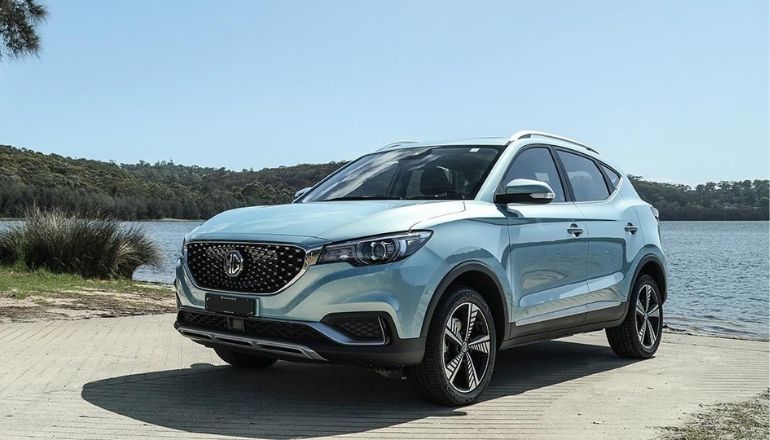
A tiny SUV called the MG ZS EV costs about $43,990. It can go up to 263 kilometres on a single charge, making it ideal for most regular trips. Numerous amenities, such as a touchscreen infotainment system, smartphone connection, and several safety measures, are included with the MG ZS EV.
Pros
-
-
- Low price
- Suitable for government rewards
- Compact and useful
Cons
-
-
- Limited availability
- Limited range compared to some other EVs.
2. Nissan Leaf
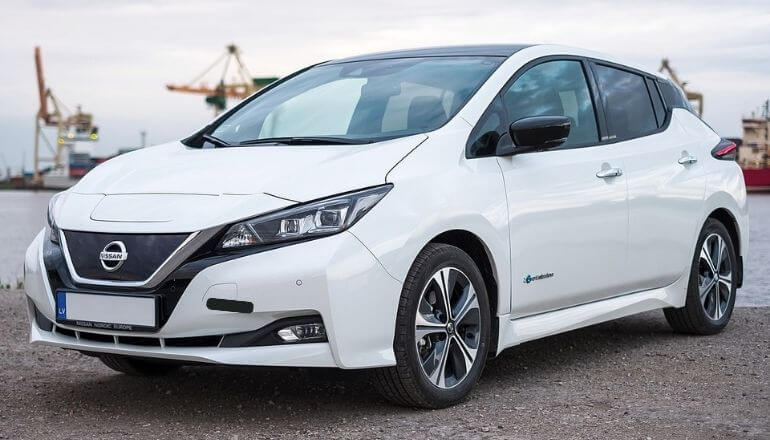
The popular electric hatchback, the Nissan Leaf, costs about $49,990. It is appropriate for most everyday travel thanks to its range of up to 270 km on a single charge. In addition to a touchscreen infotainment system, smartphone connection, and several safety measures, the Nissan Leaf has a number of other amenities as well.
Pros
-
-
- Low price
- Suitable for government rewards
Cons
-
-
- Spacious and useful
- Limited availability
- Limited range compared to some other EVs.
3. Renault Zoe
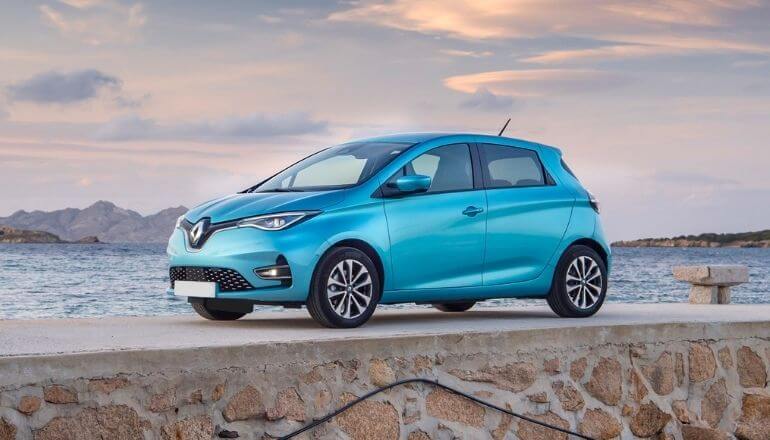
A little electric hatchback called the Renault Zoe costs around $50,990. For its class, it boasts an amazing single-charge range of up to 395 km. Numerous technologies, such as a touchscreen infotainment system, smartphone connection, and a number of safety measures, are included with the Renault Zoe.
Pros
-
-
- The exceptional range for a little EV.
- Suitable for government rewards
- Effective and practical
Cons
-
-
- Limited accessibility
- Greater cost in comparison to some other small EVs
4. Hyundai Kona Electric
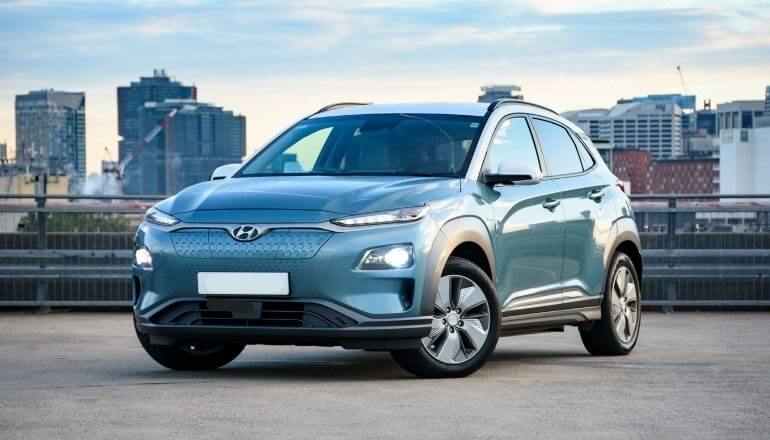
The Hyundai Kona Electric, a popular electric SUV, costs about $61,490. One of the market’s longest-range EVs, it can travel up to 484 km on a single charge. Numerous amenities are included with the Hyundai Kona Electric, such as a touchscreen infotainment system, smartphone connection, and a number of safety measures.
Pros
-
-
- Long-range for a reasonably priced EV
- Suitable for government rewards
- Spacious and useful
Cons
-
-
- Limited availability
- More expensive compared to several other inexpensive EVs.
Future of Electric Cars in Australia
Electric vehicles are set to have a big impact on Australia’s transport sector as the globe progresses toward a more sustainable future. In Australia, the following trends and forecasts are made about the use of electric vehicles:
1. Enhanced Government Support
The Australian government has already implemented a number of incentives to promote the use of electric vehicles, such as tax cuts, rebates, and investment in infrastructure for charging stations. Future government funding will probably increase as Australia works to cut its carbon emissions and achieve its climate goals.
2. More Affordable models
Electric vehicles are projected to become increasingly accessible to the average customer as technology advances and economies of scale take effect. This will expand the availability of electric vehicles to a larger population and may contribute to a rise in their appeal in Australia.
3. Improved infrastructure for charging
The absence of charging infrastructure was one of the major obstacles to adopting electric vehicles in Australia. However, as more public and private charging stations are being created, this will probably alter in the upcoming years. Furthermore, modern innovations like wireless charging can make charging even more practical.
4. Increased range
Electric vehicles are projected to have greater ranges as battery technology advances, making them more useful for longer trips. This will aid in addressing range anxiety, which is one of the key worries that many people have about electric automobiles.
5. Growth of experts in servicing electric vehicles
EV car service professionals qualified to repair and maintain electric vehicles will be more in demand as more electric vehicles hit the road. They will offer specialised EV vehicle services, such as free car inspections, general auto repair services, and mobile mechanic services for EVs. General auto repair services have a big potential to expand their offerings.
6. Hybrid and electric vehicles to overtake ICE vehicles.
Electric and hybrid cars are expected to ultimately surpass conventional internal combustion engine (ICE) vehicles in popularity as technology advances and costs drop. In Australia, the auto sector may substantially change if electric vehicles outnumber conventional vehicles.
How To Find an Electric Cars Service Specialist in Adelaide
You may go to an electric car service professional for all of your servicing needs for electric vehicles. They can assist you with setting up charging stations and doing battery maintenance. The best hybrid car expert can be located by searching for the best hybrid car specialist near me on the search engines.
This will show you results for the best hybrid car services in Adelaide, which are located close to you and can offer specialised repair services for your EV. A specialised auto repair shop in Adelaide can offer everything from simple maintenance to battery replacements and from minor fixes to extensive overhauls.
If you experience a sudden breakdown in the middle of the road, then you can look for a mobile Mechanic Near Me. This will help you locate mobile mechanics who can visit you then and there to offer you an easy EV car service or repair.
You can also look for a specialised EV car service company to meet all of your EV car servicing needs. From installing charging stations to replacing batteries, they may assist you with a wide range of services related to EV vehicles.
There are also numerous companies that offer Free car Inspection in Adelaide if you require a free automobile inspection. They can find any possible faults with your automobile with these checks before they become more serious concerns. One can opt for these free services to keep their vehicles in good shape for a long time.
Also Read: How To Charge An Electric Vehicle At Home?
Conclusion
More Australians are already considering buying electric cars thanks to government incentives, including tax reductions, rebates, and investment for charging infrastructure. Electric cars are projected to get even more inexpensive as technology advances and economies of scale take hold, making them more accessible to a larger spectrum of individuals.
As the demand for EV vehicles spikes, electric car service professionals that are qualified to repair and maintain electric vehicles will be more in demand. So there is a big potential for these businesses to expand their offerings.
In the end, it’s conceivable that electric and hybrid cars will soon surpass conventional ICE cars in popularity, bringing about a substantial change in the Australian automotive sector. Electric vehicles will significantly contribute to lowering carbon emissions and assisting in preserving our environment as we progress towards a more sustainable future.
